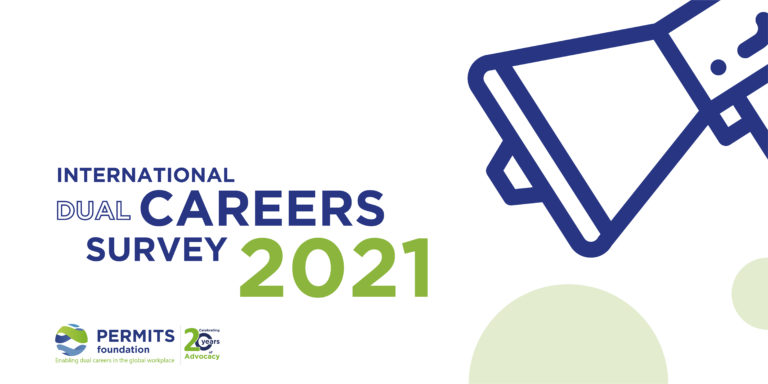


This year, Permits Foundation celebrates 20 years of advocacy in support of international dual careers. Director Helen Frew highlights two key initiatives that the Foundation is sharing with the global mobility community to help underpin the case for legislative change.
For those who are not familiar with Permits Foundation, they work to open up employment access for spouses and partners of highly skilled international employees in the host country. Importantly, they approach the issue at government level, engaging with policy makers around the world to try and improve legislation so that the family member of a mobile employee is also authorised to work while on assignment. Permits Foundation is the only organisation carrying out advocacy solely and specifically on this issue. They are a not-for-profit corporate initiative.
With the increasing number of international dual career couples, partner work access is a factor that has a major impact on the success of an assignment and so from a company perspective is closely tied to talent acquisition and retention. Particularly since the pandemic, employers are paying much more attention and care to their global workforce. For the mobile family, assurance that the partner can work is an important factor aiding well-being and integration in the host country. It is a modern-day necessity for many relocating couples. The Foundation is supported by around 40 major organisations from a range of sectors. The breadth and quality of support is testament to how important this issue is to global employers, international employees and their families.
World Map of mobile spouse and partner work authorisation
The trend worldwide is going in the right direction. In around 30 countries there is legislation in place that authorises partners of highly-skilled international employees to access work for any employer upon recognition of their dependant status. The Foundation’s World Map of mobile spouse and partner work authorisation gives a useful snap shot of the legislative situation and highlights where partners of international employees may access work directly for any employer and also the countries where work access is not possible via dependant status or where conditions apply. By clicking on a country you find out more information on the legislation there and also what Permits Foundation is doing. The bell icon shows that the Foundation is currently engaging with government and/or stakeholders in the US, Ireland, India, China, Singapore and South Africa. These are the priority countries mentioned most often by their sponsors. Their map is available on their website and they are happy for the world map link to be shared with attribution to Permits Foundation.
When they carry out their advocacy, the Foundation encourages a broad definition of the term family member. They value inclusion and highlight on their map those countries that recognise same-sex couples, non- married partners, where other family members are authorised to work and where self-employment is possible for dependants.
International Dual Careers Survey 2021
A strong evidence base is key to the Foundation’s work. They know that governments respond to data. While they regularly check the views of ther network, this year is particularly significant. They are launching their largest survey ever in order to gather feedback from global mobility professionals and also partners of international employees in the wake of the pandemic.
As well as tracking what has changed since our first survey in 2008, they ask questions relating to the types of assignment being taken now, the willingness to travel, concerns around health and safety and impact on mental health. The survey is also looking at the assistance that companies are giving, if there is increased duty of care pre-assignment and how visible support for dual careers is in the organisation’s diversity, equity and inclusion policy.
The 2021 international dual careers survey is launched on their website and will run through October. Please take part and share the link to the survey with your colleagues! They are happy to talk to organisations who want to know more about their work.

